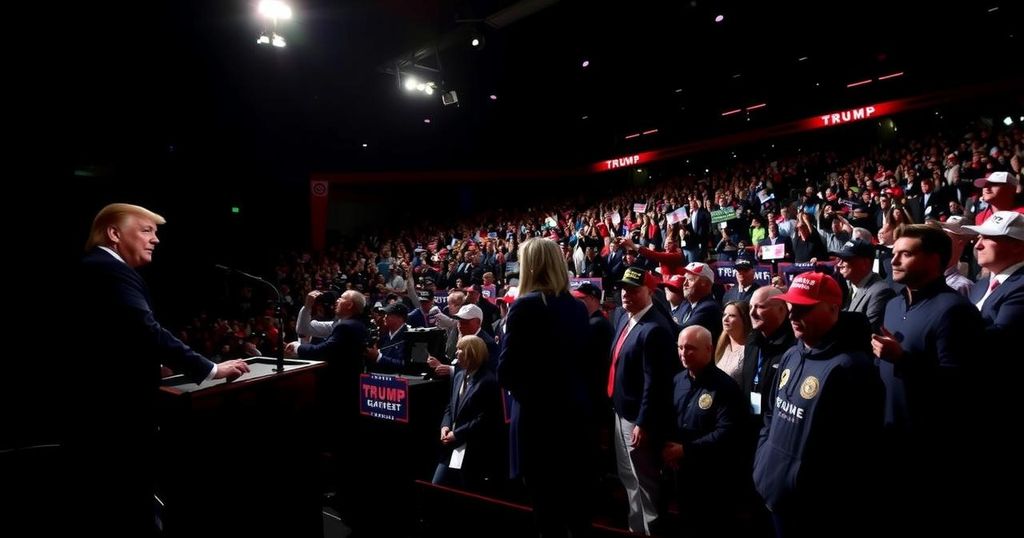Donald Trump is facing numerous outstanding payments for his campaign rallies across the U.S., indicating a long-standing pattern of unpaid debts. With the 2024 election approaching, his financial challenges include significant unpaid bills to various cities for security and police services related to his rallies, as well as decreasing small-dollar donations. This all occurs amidst his ongoing legal battles, raising concerns regarding his campaign’s financial viability.
Donald Trump is facing increasing scrutiny over a number of outstanding payments related to his campaign rallies across the United States. As he campaigns for the presidency once again in 2024, he has accrued significant debts to multiple cities for costs associated with the organization of these events, particularly for security, police overtime, and facility rentals. Among these cities, Prescott Valley, Arizona, claims it is owed over $25,000 for a rally held in 2022, while Mesa, Arizona, has sought repayment of nearly $65,000 since a rally in 2018. El Paso, Texas, reports a staggering bill of over $569,000 for a 2019 event. The issue of unpaid dues is compounded by financial challenges faced by the Trump campaign, including a decrease in small contributions and increasing competition in fundraising, with Democratic nominee Kamala Harris recently surpassing $1 billion in fundraising. The Trump campaign has struggled to keep pace, particularly in a year where supporters making small donations have dropped significantly compared to previous election cycles. This pattern of non-payment is not only isolated to his current campaign; it appears to have historical roots, as investigations reveal long-standing issues with unpaid invoices from Trump’s past endeavors, including legal fees and missed payments to contractors. Legal challenges, including allegations of election interference, have further complicated Trump’s financial picture, leading to hefty legal fees that have reportedly surpassed $100 million. Local authorities are increasingly requiring potential campaign organizes to pay for services in advance, a clear indication of Trump’s dubious financial track record regarding rally-related expenses. As the general election approaches, the financial landscape surrounding Trump’s campaign presents concerns not only for his viability but also for local governments bearing the burdens of his unpaid debts.
The article discusses the ongoing financial issues surrounding Donald Trump’s campaign rallies, focusing on the unpaid bills for services provided by various cities in connection with these events. As he prepares for the 2024 presidential election, Trump faces mounting debts, emphasizing his long history of financial disputes, including unpaid legal fees and contractor issues from prior business ventures. The context includes comparisons with fundraising efforts from his opponent, Vice President Kamala Harris, highlighting Trump’s obstacles in garnering small-dollar donations, integral to previous successes in campaign financing. An overarching theme of the article is Trump’s historical patterns of unpaid obligations, framing current liabilities within the larger narrative of his financial conduct.
In summary, Donald Trump’s campaign is currently grappling with significant financial issues, including a growing list of unpaid dues to various cities for rally expenses and decreasing small donor contributions. This situation, compounded by ongoing legal battles and longstanding financial disputes from his business past, raises questions about the fiscal integrity of his campaign as it heads towards the 2024 election. The need for up-front payments for services by local governments underscores the extent of the financial concerns surrounding Trump and his campaign operations.
Original Source: www.aljazeera.com







